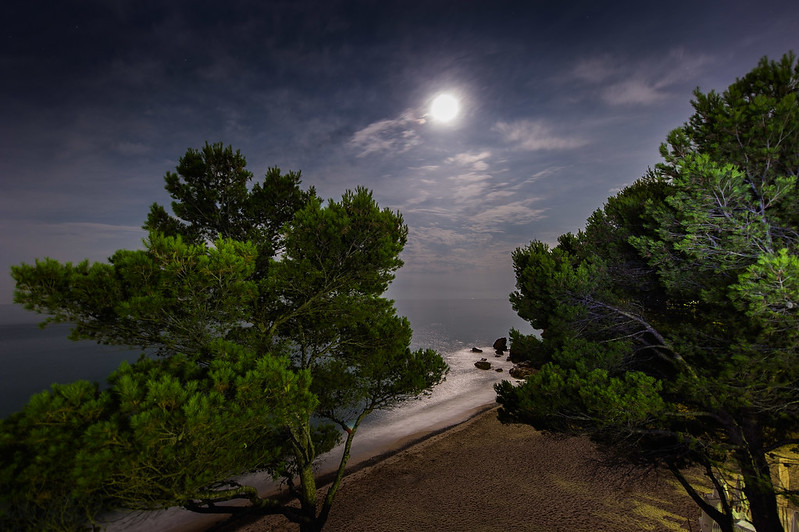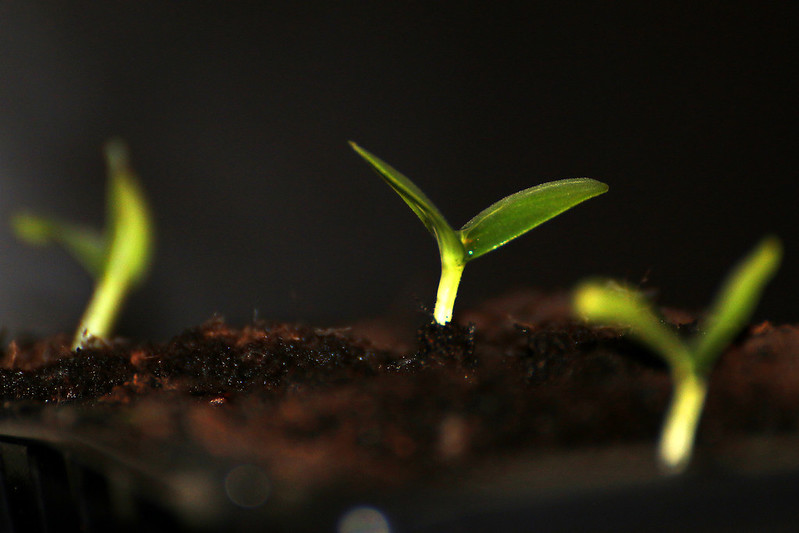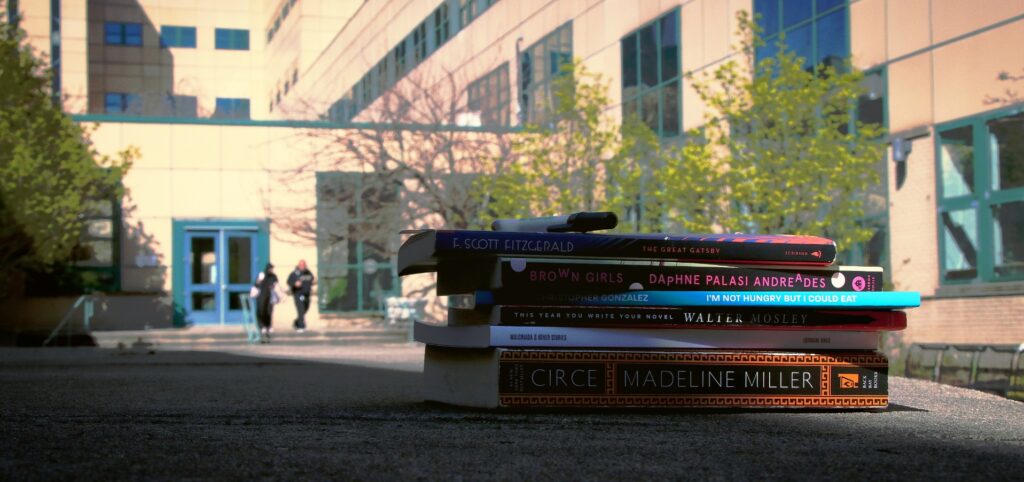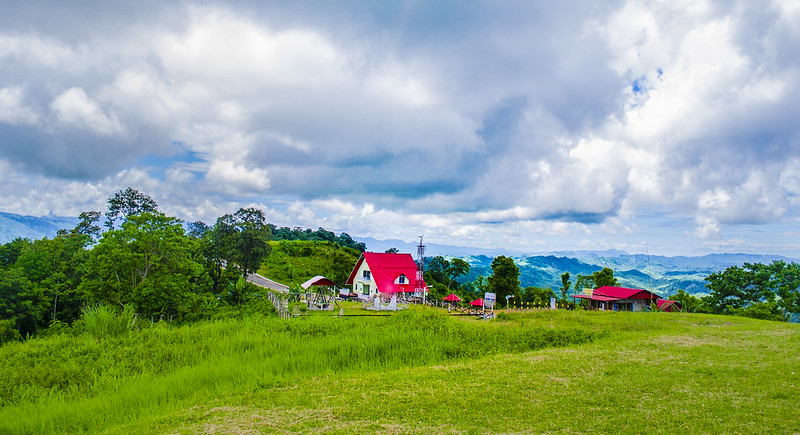by Joel Pazmiño Rodriguez
The chants of the crowd roar in rhythm, and the drum pounds through the speakers. He nods at the owner who’s biting his pen at the counter, but he doesn’t respond. There’s a cup final this weekend in Spain, and fútbol fever runs hot in the only deli left on the block.
“Hello, I made an order para recojer,” he tip toes over the counter to say. “A bacon, egg, and cheese on a plain bagel.”
“Ah, si. Ahorita lo hacemos,” the deli chef says. “Six mini.”
He turns on his heel to look behind the glass, a sight he’s already familiar with, yet takes inventory and imagines what the desserts and bread taste like. The ones with jelly filling aren’t his favorite. But the ones with chocolate are the ones to his heart. The American chocolate bars are sweet, but they have no story for him. A Hershey bar can mean Hershey Park in Pennsylvania, but to him it’s Halloween and a dental appointment. The little, quarter-sized ones, that used to cost him 25 cents, are the ones that helped him gain the bad weight. In hindsight, they also helped him change it into good weight at the gym. His hair nearly touches his hulking shoulders, and his t-shirt is tight on his arms.
The bell above the door rings, and two sets of footsteps scurry up to the counter. “Excuse me, how much are these?” A voice that squeaks like rusty hinges in need of WD-40 asks, pointing at a chocolate bar in blue wrapping. When was the last time he had one? Years ago now, definitely. The Jet chocolate bar was one of those foods that he didn’t eat. They’re delicious, but one leads to five, and the crash from a sugar rush wasn’t cute anymore, neither was it healthy. But they were so good. When he had them in the winter they would crack, melt on your tongue in the summer, the thick milky molasses-like texture slithering over and under your tongue.
“Cheese?” The deli chef’s eyes look through the head-sized gap between the bin of bagels and bakery desserts, while his head faces the TV. The commentators chatter loudly and have side conversations about the players, while the deli owner curses at them.
“Cheddar por fa,” he says, still in the memory of chocolate in the summer.
That one summer especially, sitting at the front of his mind, he stayed cool with several Jet chocolate bars. At the age of twelve, he was outside with neighborhood friends from noon to moonrise. That’s where he’d get the Jet chocolate bars from. Jose, the youngest one would hook it up: his family was wealthy and owned a restaurant-bakery and carniceria. But only when it was the two of them. They played GTA in Jose’s bedroom, SKATE, or Halo. And his mother was beautifully sexy, her alluring voice spoke charms, and her sleek Barbie figure turned heads. His aunt, a near carbon-copy, was younger, and less modest. Another friend from the group, Santiago, shared with all of them except Jose, that Santiago saw her standing naked in her room, in front of her mirror, rubbing oil over her breasts: salivating at the sight of her plump ass jiggle. She left with the family when the patriarch bought a business in Nevada. The restaurant couldn’t compete with the birth of establishments on the block. Jose would finish high school in the desert, only to come back as a stranger.
“¿Quiere mayonessa y ketchu?”
He shakes his head, and the deli chef turns back, a phone call, another order.
As much as he enjoyed the perks of Jose offering free food, he rarely set foot in the establishments. He’d go in when his mom asked him to buy some meat, or a coffee with whole wheat bread at the restaurant-bakery. They were always filled with talkative people, ones willing to speak to anyone. But that was a lot for him, especially at that age, and having that trouble with socializing even surprised him considering the friends he had. A rag-tag group of muchachos traviesos, banditos, friends, in puffy snow pants, sweats, or jeans, hoodies, parkas, sneakers, scarves, or Gears of War, rock-steady, boots. They used a trash bin as a sled, and a friend’s driveway as their mountain.When Jose invited them for hot-chocolate on a slow mid-winter day, he politely declined, only thinking of the cute waitresses that spoke so eloquently, or the potential for him to get roasted. When Jose looked a little sad at his rejection, and he felt bad, the oldest, Alvaro, saved everyone from the feeling by saying, “Burger King Breakfast tomorrow?”
He turns to face the TV with the deli owner and nods at it. “¿Como van?” He feels the warmth from the lights of the cold cuts and plays with a Jet chocolate bar. His fingers twirl it like a baton, and he slides his thumb along the brand, the spines, the sweetness.
In a brief commentary of the game, the deli owner explains the final to him, as if he knows nothing of fútbol. The owner loved this team since childhood, when his father and uncle wore matching jerseys and drank coffee and beer and had conchas, buñuelos, chicharrón, and empanadas. They’d stay in all day to watch their team play and the rest of the games of that weekend morning. He’d sit with them for years, until his uncle got sick and moved to Colombia, his uncle who wasn’t really blood but an old friend turned family. “They just learned how to video call each other.” The owner smiles.
From a counter attack, the commentators rile up the owner, making him stand up. “Ahi van,” he slaps the counter and his pen jumps.
“La orden,” the chef yells and watches over the owner’s shoulder with his mouth hanging.
He stares and smiles at their focus, their passion, opens his sandwich, leans against the counter, and watches the game with them, with a chocolate bar in the summer.
Joel Pazmiño Rodriguez is an Ecuadorian-American English major at LaGuardia Community College. He was born and raised in Queens and is passionate about books and movies. He takes inspiration from his upbringing and adventures he goes on. He hopes to publish a novel or collection of stories one day.
Image provided by author: “Books of Spring ’23”






